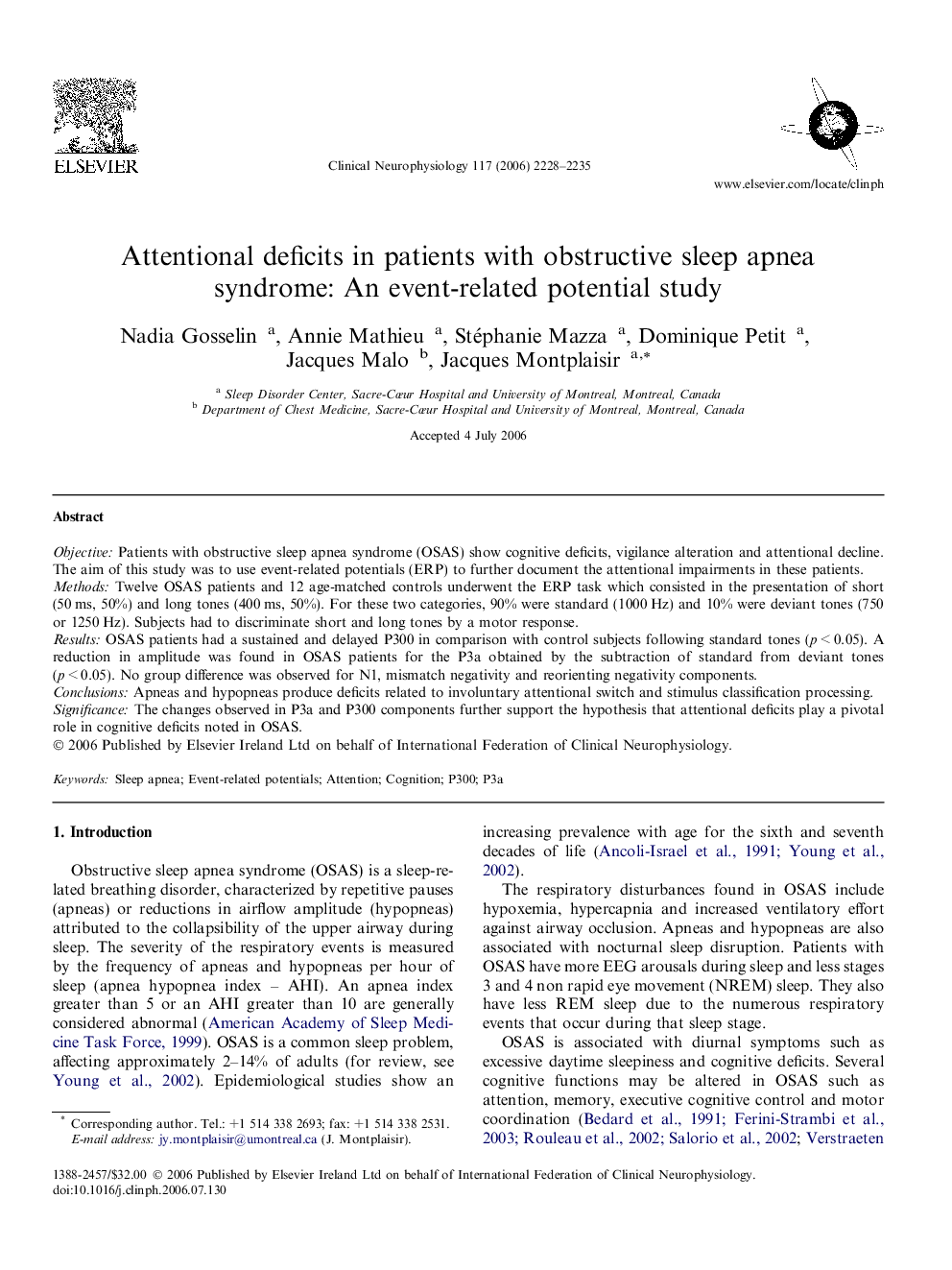| Article ID | Journal | Published Year | Pages | File Type |
|---|---|---|---|---|
| 3047671 | Clinical Neurophysiology | 2006 | 8 Pages |
ObjectivePatients with obstructive sleep apnea syndrome (OSAS) show cognitive deficits, vigilance alteration and attentional decline. The aim of this study was to use event-related potentials (ERP) to further document the attentional impairments in these patients.MethodsTwelve OSAS patients and 12 age-matched controls underwent the ERP task which consisted in the presentation of short (50 ms, 50%) and long tones (400 ms, 50%). For these two categories, 90% were standard (1000 Hz) and 10% were deviant tones (750 or 1250 Hz). Subjects had to discriminate short and long tones by a motor response.ResultsOSAS patients had a sustained and delayed P300 in comparison with control subjects following standard tones (p < 0.05). A reduction in amplitude was found in OSAS patients for the P3a obtained by the subtraction of standard from deviant tones (p < 0.05). No group difference was observed for N1, mismatch negativity and reorienting negativity components.ConclusionsApneas and hypopneas produce deficits related to involuntary attentional switch and stimulus classification processing.SignificanceThe changes observed in P3a and P300 components further support the hypothesis that attentional deficits play a pivotal role in cognitive deficits noted in OSAS.
